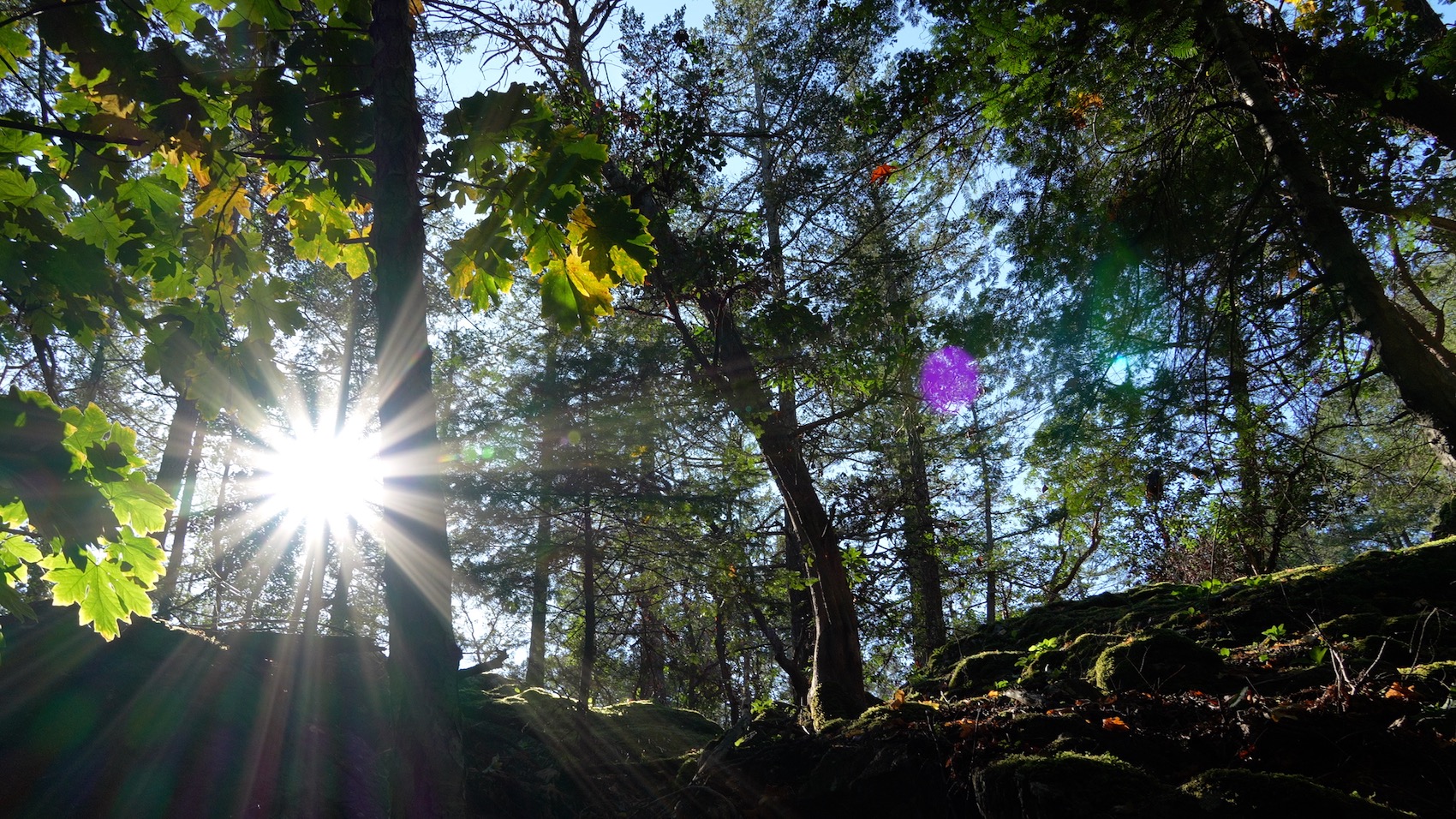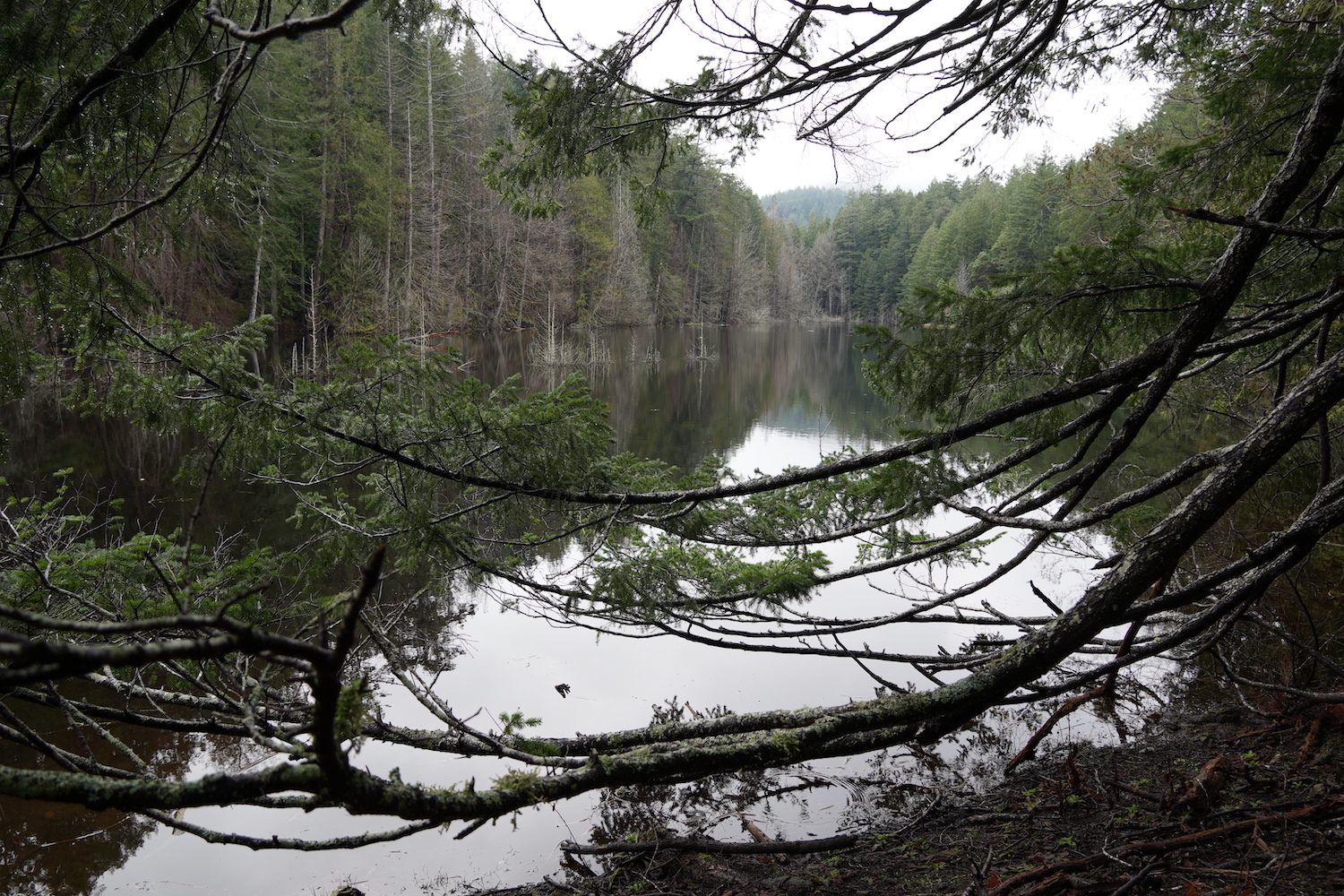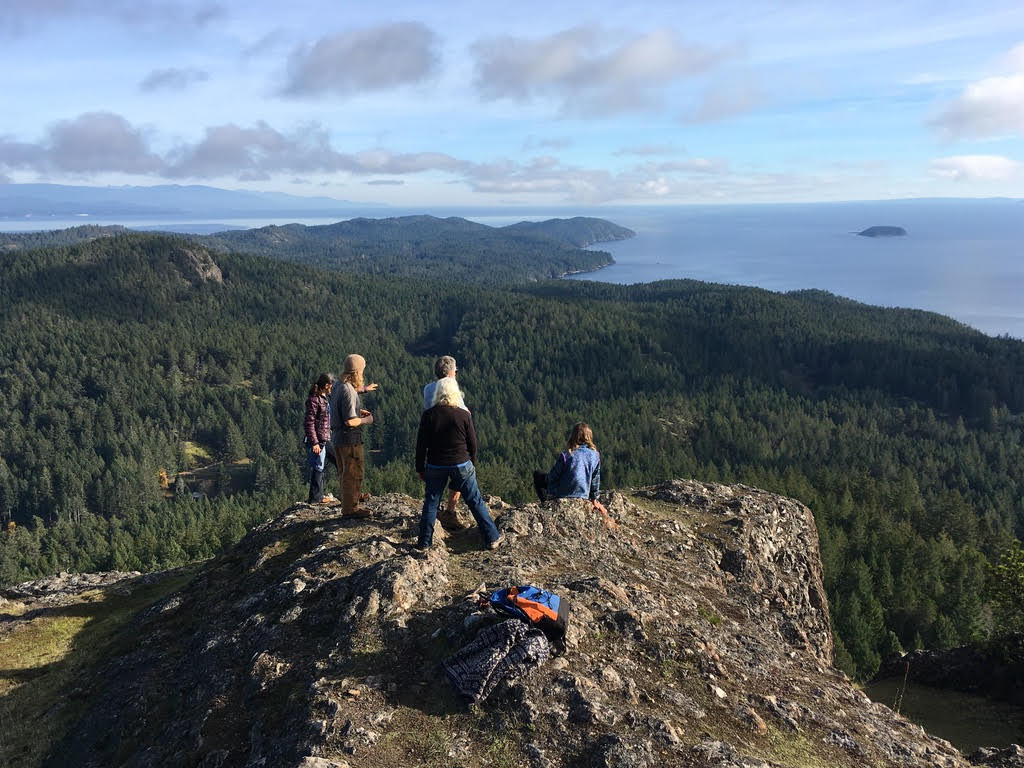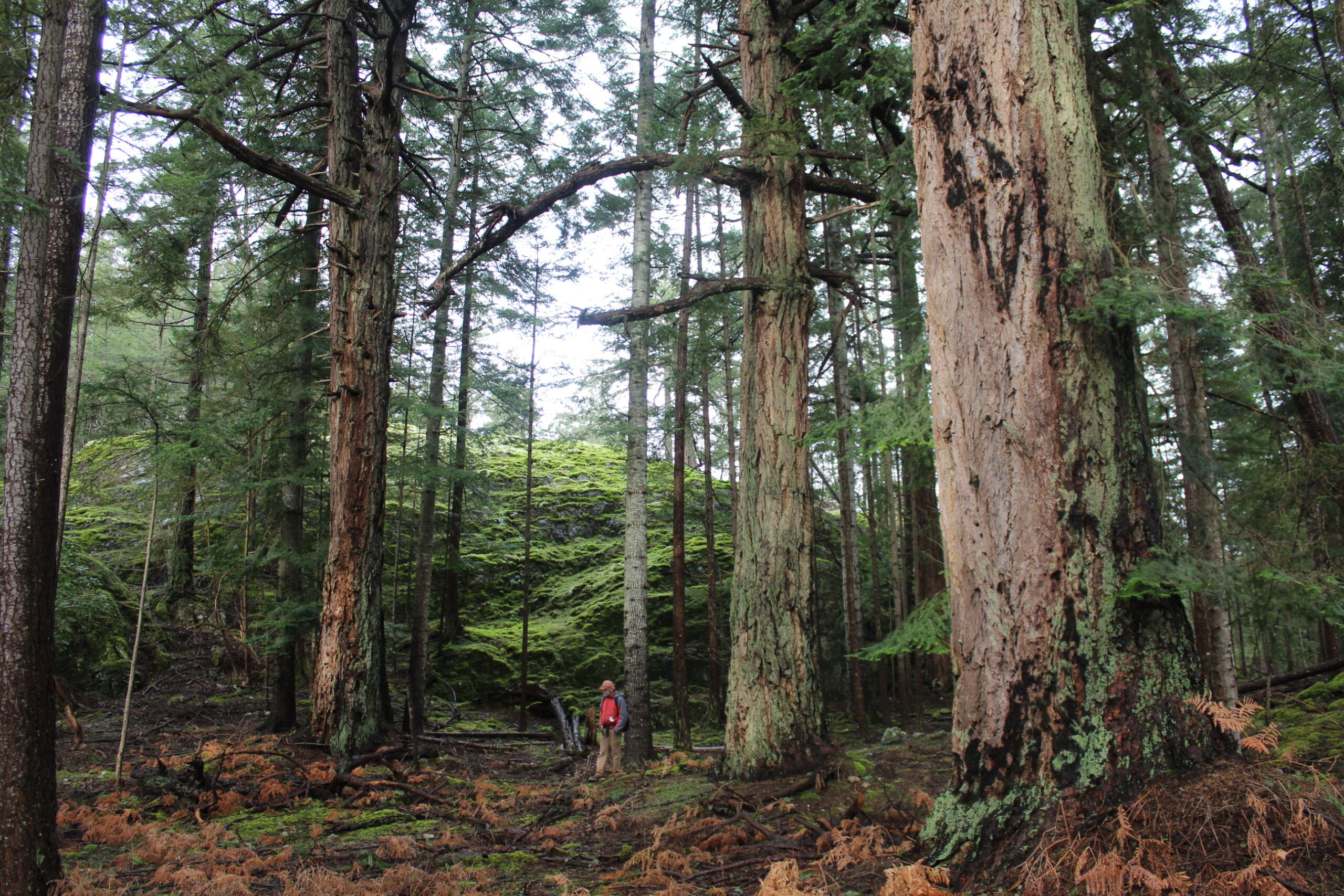
Conservation Options
The natural world is undergoing significant changes that threaten the health and very existence of plants, animals and human beings across the planet. While many of these threats are beyond our individual capacity to change there are still many actions that one can take to protect the ecosystems that all life depends upon, right here on Lasqueti.
There are many options for property owners who wish to ensure that valuable wetlands, forests, shorelines, steams and unique habitats receive the highest levels of perpetual legal protection over time.
Here are some ways landowners on Lasqueti can act to conserve the environment.
Request a Stewardship Visit from LINC
LINC offers a Land Stewardship and Management service that provides landowners free consultation and advice on ways to manage one’s property for the benefit of native plants and animals while enjoying the benefits of living on Lasqueti Island. Landowners are invited to contact LINC to schedule a site visit with one our knowledgeable Directors who will visit your property to help you assess the variety of natural habitats found on your property. We will listen to your plans and dreams for your land, help you learn about ways to manage your property for the benefit of Lasqueti’s natural ecosystems, while fulling your goals, and provide you with a brief written report that summarizes the condition of your property and the techniques and tools you can use to live harmoniously with the natural environment.
Include a charitable bequest to a qualified nature conservancy organization in your will.
A charitable bequest is a gift to a charity made in the donor’s will. Such gifts can take a number of forms, including a lump sum of money, a gift of securities, a gift of real estate or personal property, a named percentage or portion of the donor’s estate, a named percentage or portion of the residue (amount left after expenses, taxes, and other bequests have been paid) or any of these subject to a contingency such as the donor not being survived by spouse and children. Some donors create a trust in their will (a testamentary trust) which, pays income to a spouse or other family member for life or for a term of years, after which the trust remainder is distributed to the charity.
Johnny Osland donated his property to the Islands Trust Conservancy after he passed.

John Osland Nature Reserve. Photo by Morgan Maher
Grant a conservation covenant to a qualified nature conservancy organization.
A conservation covenant is a voluntary legal agreement between landowner and a nature conservancy group. It defines specific areas of a landowner’s property that the landowner wishes to see limited for the types and degree of use, such a preservation of a stream side forest or wetland area. The covenant is a legal encumbrance on the property and is registered on the title and remains there after it is sold – in perpetuity.
Thus, a caring landowner can ensure that areas designated in the covenant are protected for generations to come. Conservation covenants are drafted cooperatively between a willing landowner and a qualified conservation organization, such as LINC.
Each conservation covenant is written to meet the specific and unique situation of each property and landowner. LINC has been granted three conservation covenants over properties on Lasqueti Island.
Donate an ecologically important property to a qualified nature conservancy organization.
Some people may own a property they no longer need or want that has significant conservation value. The property may be surplus, too expense to maintain or they believe it is important to conserve the land because it contains sensitive ecological or historical value. A landowner may have strong emotional ties to a particular tract of land where they were raised or spent their lives but realize they can’t steward the land forever.
By donating land to a qualified conservation organization, a landowner can be assured that the land and its ecological values will be stewarded and protected for generations to come.
Depending on each landowner’s particular situation there may also be significant income and capital gains tax advantages for the donor by gifting land to a conservation organization like LINC.
In 2005 a local Lasqueti family generously donated the 140-acre Mt. Trematon property to the Islands Trust Conservancy. The creation of the Mt. Trematon Nature Reserve is an example of how conservation minded islanders create a lasting legacy for our community.

View from Mount Trematon Nature Reserve. Photo by Gordon Scott
Sell all or a portion of ecologically important property to a qualified nature conservancy organization.
Most people cannot afford to donate land outright. However, organizations like LINC can purchase all or portion of a landowner’s property for conservation purposes and provide the landowner with assurance the ecological values of their land will be protected in perpetuity. Conservation organizations purchase properties for the fair market value as determined by an independent appraiser.
If a landowner wishes to keep their home and surrounding land and just sell the ecologically significant portion of their land, conservation organizations are eligible for an exemption from Provincial subdivision rules. Furthermore, if the landowner is willing reduce the actual sale price below the appraised value there may be significant capital gains advantages for the seller.
The Salish View Nature Reserve was created in just this way in 2018. The landowner and LINC simply defined a new parcel that encompassed an ecologically significant portion of the landowner’s property. An independent appraisal was then commissioned that established the fair market value of the property. The landowner then agreed to reduce the final sale price by 20%, considered a donation, and in return Canada Revenue granted the seller an exemption from any capital gains tax that would have ordinarily been due at the time of sale.

Salish View Nature Reserve
Tax Benefits
The Islands Trust Conservancy’s Natural Areas Property Tax Program (NAPTEP) covenant offers even more tax benefits. It can offset 65% of property tax on the area covenanted, every year! It is especially beneficial, financially, for owners of waterfront property. The Islands Trust Conservancy has created a guide to calculating NAPTEP benefits and costs to help you determine how NAPTEP could be financially beneficial for you. For more information, see their website.
Life Estate
By donating a life estate, you can give your property to a land trust now, yet continue living on the property for the rest of your or a family member’s life. Once you or the person you designate no longer lives on the property, the land will be protected in perpetuity.
Lasqueti Island is a very special place and every landowner and every property on the island is unique.
To address the unique desires of each landowner and the specific conditions of each property conservation organizations like LINC have the tools to recommend site specific conservation options for each property and owner.
If you’d like more information about any of these conservation options reach out to LINC and one of our Directors will be happy contact you.
